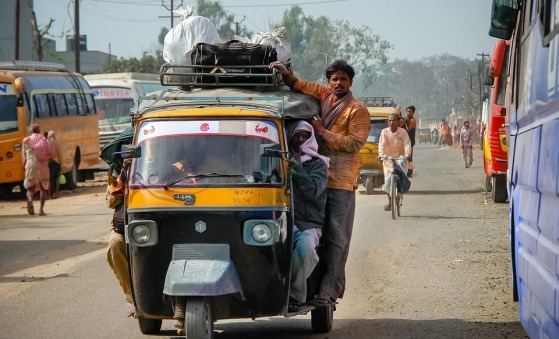
Groups in Meghalaya have raised strong objections to the state government’s decision to conduct police recruitment examinations on Sundays, describing the practice as insensitive to religious beliefs in the Christian-majority state.
The Achik Holistic Awakening Movement (AHAM) led the criticism following written examinations for various Meghalaya Police posts held on 1 June across multiple districts. The organisation highlighted South West Garo Hills in particular, stating this marked the first time such recruitment tests had been scheduled on a Sunday in the predominantly Christian region.
“By conducting an official recruitment exam on a Sunday, it directly impacts and disrupts the spiritual practices of Christian candidates and their families,” AHAM stated in a letter to the media on 2 June. “Choosing Sunday has caused unnecessary hardship and emotional distress.”
The group emphasised that Sunday serves not only as a general holiday in Meghalaya, with government offices closed, but also represents “a sacred day for the Christian community – a time devoted to worship and religious observance.”
This latest controversy follows an earlier pattern of Sunday scheduling that prompted the Meghalaya Pradesh Youth Congress (MPYC) to issue similar demands in May. The youth wing had objected to police recruitment examinations being held on multiple Sundays, with the first such exam conducted on 18 May.
MPYC general secretary Chireng Peter Marak described the scheduling as “a clear and repeated act of insensitivity” by the National People’s Party-led state government. He argued that Sunday holds “unparalleled religious and cultural importance” as a day when “families attend church, gather in prayer, and renew their faith as a core part of their identity.”
Marak stressed that these state-conducted examinations differed from centrally mandated tests. “The government had full control over the exam dates and could have easily avoided conflict with religious observance,” he stated.
The MPYC leader drew broader connections to what he termed the government’s pattern of religious insensitivity, referencing an earlier controversy over the naming of a wine store as “Heaven Eleven.” He suggested this approach aligned with “the BJP’s centralised style of governance, which frequently ignores the cultural and religious diversity of India’s states.”
Both organisations called for immediate policy changes to prevent future Sunday scheduling of state examinations. AHAM urged authorities “to avoid scheduling such important exams or official events on Sunday in the future”, whilst MPYC demanded the government “immediately cease scheduling state-level exams on Sundays” and “adopt a policy that respects the deeply held beliefs of the people it serves.”
Allen Brooks, spokesperson for the Assam Christian Forum and a prominent human rights activist from Northeast India, told Christian Today the scheduling “may infringe upon the religious rights of Christian candidates, who observe Sundays as a day of worship.” He noted that whilst the state has the authority to conduct exams, “the principle of reasonable accommodation suggests that alternative scheduling could respect religious sensitivities without compromising administrative efficiency.”
Rev Dr Edwin H Kharkongor, Secretary of the Khasi Jaintia Christian Leaders Forum (KJCLF) Shillong, said in comments to Christian Today that he was concerned about “an increasing number of official and institutional activities on Sundays which are directly impacting Christian citizens who have and wish to attend their regular worship or liturgical activities.” He emphasised that candidates “should be free to appear for the exams on any other weekday,” since conducting these exams represents “official responsibilities which can be done on any working day.”
Brooks proposed that “the government could demonstrate goodwill by avoiding Sundays for major exams or events in the future” and suggested “consulting community stakeholders before setting exam dates to balance administrative needs with religious considerations.”
Rev Dr Kharkongor called on government authorities “to address issues such as these with sensitivity to the local constituencies and populace” to help citizens achieve “more significant achievement – thus contributing more meaningfully to the well-being of the state.”
Both AHAM and MPYC have indicated they will continue monitoring government actions to ensure future policies reflect what they describe as the true spirit and identity of Meghalaya’s people.




